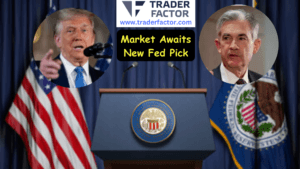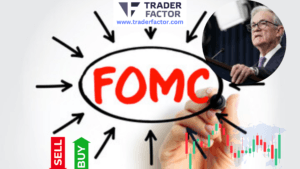The European stock markets rose on Tuesday as traders considered the region’s economic prospects which are still limiting output. Stocks increased on Tuesday due to light holiday trade volumes and the overnight decline in the value of the US dollar. Elsewhere, RBNZ increased the Official Cash Rate by a record-breaking 75 basis points.
As investors gradually returned to risk markets amid some dovish commentary on rates from Federal Reserve officials that offset worries over China’s escalating COVID-19 crisis, stocks finished firmly higher on Tuesday, while the dollar declined from its recent ten-day highs and Treasury bond yields declined.
In an interview on Monday, Cleveland Fed President Loretta Mester expressed her preference for a smaller 50 basis point rate increase for the central bank’s upcoming meeting in December but added that “I do think we’re going to have to let the economy tell us going forward” regarding the pace of additional rate hikes.
While cautioning against “taking anything off the table” in terms of a December hike, San Francisco President Mary Daly said there were signs of lowering inflation in the largest economy in the world.
The odds of a 50 basis point hike next month are now 75.8%, down from 85.4% last week, while the U.S. dollar index dropped 0.35 percent versus a basket of its counterparts around the world to trade at 107.466 in overnight trading.
Table of Contents
ToggleTreasury Yields Eased
Benchmark Following yesterday’s stronger-than-anticipated $42 billion auction of new paper, the yield on 2-year notes was set at 4.537 percent, while the yield on 10-year notes increased to 3.767 percent.
However, the difference between 2-year and 10-year notes continues to indicate a recession, and one-month Treasury bill yields are once again higher than 30-year bond yields for just the second time since late 2019. This has happened twice so far; the other occasion was in 2007.
S&P 500, Dow Jones, Nasdaq Close Higher
The S&P 500 closed over 4,000, up 1.36% overall. To reach 34,098, the Dow Jones Industrial Average increased by 397 points or 1.18%. The tech-centric Nasdaq gained 1.36% in the end. The energy and mining sectors saw the strongest increases, with oil and gas companies like Harbour Energy and BP among the top achievers.
The pan-European Stoxx 600 closed provisionally 0.8% higher, at its highest level in three months. Following Saudi Arabia’s denial of a claim that OPEC+ may increase oil output, stockpiles of oil and gas increased by 4.7%. Stocks in the mining industry increased by 2.7%.
Stoxx 600 Since August

Gas and Oil Prices
Early trading witnessed an increase in global oil prices after a choppy session on Monday that saw prices plunge to the lowest point in more than ten months due to rumors of an increase in OPEC production, only to roar back by the conclusion of the session after the Saudi Arabian Energy Minister denied the plan.
China’s COVID-19 crisis is limiting demand in the world’s largest energy market, but conflicting reports about OPEC’s production plans ahead of next month’s regular meeting in Vienna, as well as a looming price cap on Russian crude that is a part of sanctions agreed upon by G7 member states, are escalating market volatility recently.
WTI oil futures for January delivery, which are closely related to the cost of gasoline in the United States, were trading at $81.18 a barrel on Tuesday after rising $1.14. The benchmark, Brent crude contracts for the same month, were up $1.05 at $88.50 a barrel.

Shares Respond to Earnings
Shares of Zoom Video Communications (ZM) fell 3.9% after the video conferencing experts predicted weaker-than-anticipated near-term revenue growth, which overshadowed a strong third-quarter earnings report.
A stronger Christmas shopping season and better-than-expected third-quarter earnings helped Best Buy Co. (BBY) soar 12.8%. The electronics retailer anticipates a short-term lift from Black Friday and Cyber Monday.
Shares of Dell Technologies (DELL) increased 6.8% after the PC and laptop manufacturer reported stronger-than-expected third-quarter earnings, but cautioned that decreasing demand and a strong currency would continue to be challenges throughout the rest of the year.
RBNZ Monetary Policy Statement
In order to control inflation, the Reserve Bank increased the Official Cash Rate by a record-breaking 75 basis points to 4.25% and indicated that there would be other increases in the future.
The anticipated OCR track was the biggest surprise. The RBNZ predicts that the OCR will need to increase to a peak of 5.5% next year (instead of a peak of 4.1% in its predictions from August).
The RBNZ believes that the New Zealand economy has a strong connection to inflation. It now thinks that a recession will be necessary for the upcoming years to drive inflation back down to the target range of 1-3%.
In spite of this, it has significantly raised its inflation projections since August and does not anticipate a decline in inflation below 3% until the second half of 2024.
The Monetary Policy Committee also considered raising interest rates by 100 basis points today, but ultimately decided against it due to the lingering consequences of previous rate hikes.
What to Expect Wednesday
Early on Wednesday, markets are generally quiet as investors wait for important macroeconomic data releases.
The preliminary November Manufacturing and Services PMI surveys for Germany, the Eurozone, the UK, and the United States will be released by S&P Global (US).
The Durable Goods Orders and New Home Sales statistics for October, weekly Initial Jobless Claims, and the Consumer Sentiment Survey from the University of Michigan will also be included in the US economic docket.

Disclaimer
All information has been prepared by TraderFactor or partners. The information does not contain a record of TraderFactor or partner’s prices or an offer of or solicitation for a transaction in any financial instrument. No representation or warranty is given as to the accuracy or completeness of this information. Any material provided does not have regard to the specific investment objective and financial situation of any person who may read it. Past performance is not a reliable indicator of future performance.

















